Introduction. The Autism Guide for Parents. Autism Acceptance Week.
It’s rare, but we could almost have posted a feature with absolutely none of the usual paragraphs and structure.
Researching this feature opened so many doors – and made us realise how so infinitesimally small our lives have been compared with the universe of autistic children and people that, around us all, are transforming the world in ways we had simply not imagined.
Spend even a day on You Tube with autistic children, adults and their stories – and you cannot help to aspire to a better world, to be a better person.
And, meeting an autistic child in person, everything is even more magical, life-changing and extraordinary.
In the following, we cover some of the ground that we hope will help parents struggling with Autism – and, as importantly, aim to bring it to life for all of us, as parents, and students, that may be lucky enough to have a child on the autistic spectrum in our schools.
Autism and Science. The story of a Scientist who Shapes our World Today…
“As Dr. Temple Grandin said – ‘What would happen if the autism gene was eliminated from the gene pool?You would have a bunch of people standing around in a cave, chatting and socializing and not getting anything done.”Autism is seeing the world from a different angle. It is important to understand that whilst an autistic person cannot fit into a neurotypical world, a neurotypical can fit into the world of an autistic person.At the English College, we recognize that the “playing field” is not always a level surface.Our world would be far less beautiful without them.So treat them with kindness, respect and a lot of love and care.After all, they are different, not less!”Mrs Rabia Ahmed. Head of Inclusion/SENDCO. The English College Dubai.
Autism and Music. The Story of Kodi Lee on the Biggest Music Show in the World…
“Who does not value the ability to live in the moment, be unabashedly passionate and unwittingly embrace others for their true selves?
Dunecrest celebrates and relishes the extraordinary gifts of those with Autism/ ASD.
As a community, we recognize the profound positive impact these students have not only on our perceptions, beliefs, and expectations but on our lives.
Nicole Ashwin, SEND Coordinator, Dunecrest American School
Autism and Art. “The fact that he signs every painting “I love you” just makes my heart melt. That’s just amazing to me…”
“Neurodiversity is a term used to describe the natural differences in how the brain works- how we think, behave, learn, and process information.It is important that we look beyond the medical labels given to students and embrace the fact that neurodiverse students often have enhanced capabilities in certain areas.Every student has something that they excel at, and it is our job to help them find their superpower.Frances Beaumount, Head of Inclusion, Dubai English Speaking College.
Autism, Mathematics and Physics. Don’t think…. BE.
“As we continue to celebrate diversity during World Autism Month, I am reminded of how North American International School daily embodies our commitment to being a truly inclusive school.At NAIS, we focus on changing our teaching to accommodate how children learn rather than forcing children to change the way they learn to accommodate the way we want to teach.ALL children can be successful, but we must work to recognize that success comes in various forms.Each student at NAIS has a unique perspective that is valuable to all members of our community.Students with autism are not disabled, they simply bring a new perspective. Valuing this perspective allows us all to understand and recognize that different does not equal less.”Justin McCauley. Principal. North American International School Dubai.
Autism and Amazing Parents: I Can Make the Difference…
“My students with Autism have taught me so much more than I will ever teach them.I am immensely grateful to each one for showing me a glimpse of life through their eyes – as in turn, this has filled my own life with joy and appreciation.I believe, without doubt, that there are special gifts unique only to people with Autism.Whether it be – a mind that sees beauty in intricacies many will miss; an unwavering commitment to their interests and passions; the type of bold and objective mindset that is steady and reliable; or viewing the world from a perspective unfiltered by social distractions.Above all, I am in awe of the ability to be unapologetically oneself. For these and many more reasons, I adore our inclusive school and all of its diverse Students of Determination.Zara Harrington. Principal. Safa British School Dubai.
What is Autism?
“It is our role as parents and adults to celebrate the greatness and genius in every child.
Every child will have things to improve and things that they will find difficult.
Children are always seeking feedback, let’s celebrate with them, enhance their confidence and be role models so our children can celebrate the genius in themselves and in others.
I am very proud to be a member of the FirstPoint Family, a family who lives by these values every day.”
Matt Tomkins. Principal. Chief Executive Officer. GEMS FirstPoint School Dubai.
April 2nd was World Autism Day – and social media was awash with memes, inspirational quotes and the light blue colour that is associated with the Autism awareness campaigns. Autism is a fairly commonly known condition around the world but it is also a complicated and confusing one. Autism affects a large number of people but there is little working knowledge about this neurodiversity in general society.
Autism Spectrum Disorder (ASD) is a condition in the brain which, as a general rule, impacts a child’s development in two main ways.
- The first area is social communication and interaction; and,
- The second is repetitive behaviour and exceptionally focused interests.
Although a child will have ASD from birth, it will only be noticed when social interactions exceed the child’s limitations and/or the repetitive behaviour becomes apparent. The exact ways in which these differences from other children show themselves vary hugely from child to child.
Understanding of Autism amongst the psychiatric community has grown in recent years. Diversities that were previously considered to be stand-alone conditions are now designated as one “disorders” that falls under the umbrella of Autism. Asperger’s disorder, Childhood Disintegrative Disorder (CDD) and Pervasive Developmental Disorder Not Otherwise Specified (PDD-NOS) are now thought to all fall within a spectrum of symptoms and behaviours that differ in their severity and ways that they show themselves.
Not all children that are autistic show all of the signs – and many children that do not have Autism at all may display some of the indicators. This is why it is important to get an official diagnosis from a qualified professional.
How Many Children Are Affected By Autism?
“Celebrating ASD students and their gifts should be highly focused in schools, but also within the whole school community.
Too often children with differences are not invited to playdates and birthday parties, and parents of these children are not invited for coffee morning or social events, making families feel isolated.
Inclusion really begins within the community.
Recently, at Fairgreen International School , we hung a series of posters all around our campus highlighting successful “champions” of determination, to help bring awareness and admiration for the special talents and achievements of these astounding individuals.”
Alison Scott. Head of Inclusion. Fairgreen Head of Inclusion.
Autism Speaks is a well respected, leading organisation that was established in 2005 by Bob and Suzanne Wright, Grandparents of a child with autism. With a clear and passionate mission to increase global understanding of Autism, and to improve the lives exponentially of all those impacted by Autism, they have made huge inroads and fabulous advancements in the autism community through research, partnerships and collaboration.
According to their most recent research gathered from data collected in 2020:
- Approximately 1 in 54 children are diagnosed with Autism Spectrum Disorder.
- 1 in 34 boys are identified with Autism.
- 1 in 144 girls are identified with Autism.
- Boys are 4 times more likely to be diagnosed with Autism than girls.
- Most children are diagnosed after the age of 4.
- Autism can be diagnosed as young as 2.
- 31% of children with ASD will also be diagnosed with an intellectual disability (although it is wise to be wary of statistics like these that are devised from outmoded intelligence tests that attempt to fit round pegs into square holes. As above, Autistic children and adults are often significantly more gifted than we are, and what are defined as disabilities could equally be defined as super-abilities.
- Autism affects all ethnic and socioeconomic groups.
- Minority groups tend to be diagnosed later, and less often.
What Causes Autism?
At the moment there is no confirmed known cause for autism.
However, there has been a lot of research conducted that suggests that a combination of genetic, non-genetic and environment factors all influence the likelihood of a child developing autism.
The Genetic Risk Factors:
Autism does tend to run in families. There are certain genes that have been identified as being present in people with Autism However, it is important to point out that those genes have also been present in people that are diagnosed as not autistic. If a parent has one or more of these genes they may pass it on to their child even if they do not have Autism themselves.
The Environmental Factors:
Research has also indicated that there are certain environmental elements that increase or decrease the chance of developing autism. These include, the age of either of the parents (the older the parent the higher the risk), premature birth, low birth weight, multiple pregnancies and pregnancies spaced less than one year apart.
With one or both of these factors in place, the chance of developing Autism is increased, as there is an impact on how the early brain develops. Some factors appear to affect how the nerve cells in the brain communicate with each other. Others effect the communication between entire regions of the brain. More research is underway to discover how and why these differences manifest and whether these differences are relevant to the severity of the condition.
It is worth emphasising that there is absolutely no evidence at all that vaccines cause Autism, despite a number of now discredited campaigns to link the MMR vaccine, for example, with causing it. Those that have sought to link vaccines with Autism, whatever their intentions, have fuelled vaccine denial and placed many children’s lives at risk.
What Are The Core Indicators of Autism?
Symptoms of Autism begin early in childhood, although they may not always be readily recognised. These symptoms are persistent and they may interfere with day-to-day living. As above, the main signs to look out for are difficulty with normal social interaction and communication – and the presence of behaviours that are restricted and repetitive.
Social Communication Challenges
Children with Autism usually have difficulty with both verbal and non-verbal communication and they may find it hard to understand or properly interpret common cues from the people around them.
It can be a struggle for autistic children to decipher:
- Spoken words – it is estimated that 25% of children diagnosed with autism spectrum disorder never develop spoken language beyond a few words or sentences.
- Hand gestures, eye contact, facial expressions, tone of voice and turns of phase that are not supposed to be taken literally. An example is sarcasm or hyperbole, all the many ways that most of us may express ourselves but which many of those with autism battle to process.
This can result in autistic children struggling with:
- Recognising emotions and intentions in other people.
- Recognising and understanding their own emotions.
- Expressing their emotions.
- Seeking emotional comfort in others.
- Feeling overwhelmed and stressed in social situations.
- Natural ‘turn-taking’ in conversations with others.
- understanding what we may see as appropriate or “normal” physical distancing.
Restrictive and Repetitive Behaviour
These behaviours vary dramatically across the autism spectrum Some of the more common ways autistic people will show this are:
- Repetitive movements of the body such as rocking, twitching, flapping, spinning and running back and forth.
- Starring blankly at lights or spinning objects.
- Ritualistically repeating behaviours such as flicking light switches, or touching objects in a set order.
- Narrow and obsessive interest in very specific topics.
- Needing to stick to a strict process or routine and displaying signs of stress if the routine is varied, such as the route to and from school.
Sensory Responsiveness
There is a third indicator that the American Psychiatric Association has more recently added to the diagnostic formula to help identify autism.
Sensory issues impact sights, sounds, smells, taste, touch, balance and body awareness and can be either hyper (over responsive) or hypo (under-responsive) sensitivity. This means, in practice, that many autistic children will tend to overreact or underreact to stimulus.
Sensory over-responsiveness indicators include:
- the inability to filter out background noise, perhaps covering their ears in distress over noises that others are not impacted by.
Sensory under-responsiveness can look like:
- a general lack of, or slow response to, stimulus.
- sensory seeking behaviour such as fidgeting, swinging in a chair or making, for us, inappropriate noises.
The Autism Speaks organisation has a clear summary of indicators by age group. They recommend speaking with a paediatrician or family doctor for an evaluation if you notice any of the following:
6 Months
- Few or no big smiles or other warm, joyful and engaging expressions
- Limited or no eye contact
9 Months
- Little or no back-and-forth sharing of sounds, smiles or other facial expressions
12 Months
- Little or no babbling
- Little or no back-and-forth gestures such as pointing, showing, reaching or waving
- Little or no response to name
16 Months
- Very few or no words
24 Months
- Very few or no meaningful, two-word phrases (not including imitating or repeating)
At any age…
- Loss of previously acquired speech, babbling or social skills
- Avoidance of eye contact
- Persistent preference for solitude
- Difficulty understanding other people’s feelings
- Delayed language development
- Persistent repetition of words or phrases (echolalia)
- Resistance to minor changes in routine or surroundings
- Restricted interests
- Repetitive behaviours (flapping, rocking, spinning, etc.)
- Unusual and intense reactions to sounds, smells, tastes, textures, lights and/or colours
There are also a variety of physical and mental health conditions that often go hand-in–hand with autism, these include:
Epilepsy. 2% of the population suffers from epilepsy in comparison with 1/3 of children with autism. Click this link for more details about epilepsy.
Feeding difficulties. 7 out of 10 children with autism have issues around eating, these include chronic overeating, Pica, which is the eating of items that are not actually food and extremely restricted food habits or extreme aversions to certain types of foods or textures.
Disrupted sleep. Over half of all children with autism have trouble getting to sleep and staying that way. These issues tend to cause other behavioural problems stemming from the lack of sleep. Click this link to discover more about insomnia in children.
ADHD. Approximately 40% of children with autism also have ADHD, compared 4% of the general population of children. ADHD is a difference in the brain’s development that affects attention, the ability to sit still and self-control. Follow this link to find out more about ADHA.
Anxiety. Anxiety disorders effect up to 42% of children who have autism compared to 3% of children in the general population. This is often associated with the autistic child’s difficulty in communication and in social settings. Once anxiety has been triggered the child will also have trouble controlling their stress levels.
Depression. Approximately 2% of children around the world suffer from depression compared to 7% of children with autism. Identifying depression can be a challenge, but signs can include a lack of interest in hobbies that were once enjoyed, lack of personal hygiene, negative self-talk and a change in sleeping habits.
Obsessive Compulsive Disorder (OCD). It is a difficult task to identify OCD from the repetitive and restrictive behaviours that are common to autism. Getting a diagnosis would require the help of a qualified medical professional who is well versed in both.
What is the Autism Spectrum?
The spectrum, put simply, means that every single individual with Autism displays a combination of the qualifying indicators in a unique way. To the extent that some need help coping day-to-day, others may need no help at all and all of the needs in between those two extremes.
Because of the extremity of the spectrum, and the ability of Autism to be masked by other issues, it can often be difficult to recognise and to diagnose. This can increase the stress and worry for parents who feel at a loss for an explanation for their child’s behaviour. Sophie Harrison, Teacher and Mother of three children, has first hand experience with an autistic child:
“I’m a mum to three brilliant, intelligent, unique boys.
My eldest, E, was recently diagnosed with high functioning Autism. Whilst sitting in the psychologist’s office during E’s assessment, she looked over at me and whispered ‘I agree with you – he has Autism’.
I felt a surge of relief wash over me. I thought, finally, a professional is listening to what I’m saying and agrees with the suspicions I’ve had for the past few years.
My husband and I have had many conversations before E’s diagnosis about whether a diagnosis would help him.
What would the benefits be of having a diagnosis?
How would this impact our son in the future?
Would we regret him having ‘a label’ that he would carry with him for the rest of his life?
In the end, my overriding feeling was that the benefits of a diagnosis would far outweigh the disadvantages.
My son is in Grade 3 and I could see that his neurodiverse brain was really struggling with school; keeping focused, making and maintaining friendships and processing all of the demands that are put on him during the school day. We now know that E is incredible at masking, especially at school, which is why school never even suspected Autism. He learns and mimics neurotypical behaviours by observing the social interactions of his peers, and by watching shows on TV. My hope is that, now E has a diagnosis, his school will be able to provide him with the additional support he needs, such as visual schedules, body breaks and opportunities to step away from the noise and distraction of the classroom.
I also felt that a diagnosis would help me to explain E and his neurodiverse features to family and friends.
Over the years I have felt judged by some of E’s behaviours, and by the way I have dealt with them. My son is a kind, caring boy however he can sometimes appear to be rude, inappropriate and unkind. He also gets very frustrated and angry. The best way to handle one of E’s outbursts is to diffuse the situation and not further escalate it by dishing out harsh punishments or consequences. There have certainly been times when I have felt that other people think I have been too lenient on him. Now E has a diagnosis I feel better equipped to explain to people some of his features and how we can all better support him.
Like any parent, I have worries and concerns about the future for my child.
I worry about what E’s high school years will look like.
Will he have friends that accept him for who he is?
Will he enjoy school?
Will he have a successful career?
Deep down I know he will; E already has many superpowers that will lead him to great success in life.
He is intensely passionate about the things he is interested in (right now that’s Minecraft!), he is a hard working perfectionist, and he has the most phenomenal memory of anybody I know.
The road ahead is going to be a challenging one, and getting an Autism diagnosis is not like waving a magic wand. But it has helped us get the best possible support. It will also help me, E and everyone around him better understand some of the neurodiverse features of Autism.”
Is There A Difference Between Autism and Asperger’s syndrome?
Asperger’s Syndrome and Autism were once considered to be separate neuro diversities. In 2013 Asperger’s was brought under the umbrella diagnosis of Autism. In layman’s terms a child who is diagnosed as having Asperger’s syndrome has typical to strong verbal language skills and intellectual capacity but they lack social skills, have extremely narrow interests and have a tendency to be clumsy. The term Asperger’s syndrome is not used as often as it once was in the psychiatric community.
Discussing Autism With Your Child
“Autism is not, and should not, be a barrier.
It is an ability to be embraced as an advantage – with the potential to benefit us all.
As a future focused school, South View School embraces abilities of all kinds – and we adapt our learning experiences to support, care and educate children on their own terms.”
David Flint. Principal. South View School Dubai.
Some families make the decision to not tell their child that they are Autistic (especially when they are very young). Some wait until the child notices that they are different. It is a personal choice, dependant on many factors.
If you choose to talk to your child about their condition, there are a number of resources available to help you do so in a way that they can best understand.
You know your child better than anyone and there is no one ‘correct’ way to break the news, but there are a few pointers that may help.
- Choose the family member who your child is the most comfortable with.
- Manage the setting so that the surroundings are familiar.
- Make sure that there will be no interruptions so that there is plenty of time for your child to process the information and ask any questions.
If your child has siblings you may want to talk to each of them individually about the diagnosis. There are also reading materials that can help them to understand. A good example is the book by Carolyn Brock for 4-9 year olds titled, ‘My family is different’.
The Impact Of Autism On Academic Achievement.
“For every child at The Royal Grammar School Guildford Dubai the same holds true: we enable children to explore their curiosity, expand their minds and gifts – and enjoy learning. The autistic child, as with every child at our school, is special and important on their own terms.”
Laura Evans Head of Inclusion – The Royal Grammar School Guildford Dubai)
There are a number of factors influenced by Autism that can have an impact on an autistic child’s ability to learn:
- Sensory issues, when a child is hyper or hypo sensitive the busy, bustling classroom and school environment can be very difficult to cope with. Learning can be impacted due to the increased stress levels and possible behavioural challenges that result from it.
- Many children with autism have sleep issues and the impact can have a knock on effect on their ability to concentrate and to stay focused on schoolwork.
- Comorbidity – this is the presence of other disorders that accompany the prime one. As we discovered above, ADHD, dyslexia, OCD and many other conditions impact on learning.
How Can your Child’s School Help?
“We have some amazing students in our school who happen to also have Autism.
They are dedicated, kind, caring and often experts in their special interests.
We celebrate Autism in our school so we can have an insight into the lives of these wonderful students and people around us in our community. They may see the world uniquely and different to each other but not less!
The key to supporting our students with Autism, lies in understanding. Teachers and parents at GEMS Wellington work together and never give up. We provide every child at our school with extraordinary opportunities built around them and their needs, interests and superpowers.
To support our ASD students, we ask WHY – if you can understand the experience and feelings that underlie how each child responds to different situations, you can help that child communicate more effectively, be happy and thrive.
We TEACH TELEPATHY – which means understanding our students with ASD and working with every child through the complexities of social communication to lessen their anxiety.
Finally we CELEBRATE and honour the interests and passions of every child, to foster their growth, development, positive sense of self and confidence in how special and talented, without question, they are.”
Lisa McAuley and Leanne Cox. Heads of Inclusion. GEMS Wellington Silicon Oasis.
Allison Hope-West emphasises the learning methods that autistic children need.
“Pupils with autism require bespoke multi disciplinary packages which include therapeutic support to help them to engage with learning. They need predictable environments with structure and high levels of routine along with packages of social learning and interaction.”
Allison Hope-West. Director of Autism. Priory Group.
It is important to work in collaboration with your child’s school, special Educational Needs Department and medical professionals to create a bespoke, Individual Education Plan (IEP) that is specifically designed to ensure that they get the very most out of school and reach their full potential. Autism Speaks has IEP Guides on their comprehensive site and video guides to help parents, schools and specialists to create IEPs tailored to the child.
Raising awareness in schools and ensuring that all members of the school community are mindful that some of their peers are neurodiverse can help to increase the inclusivity and acceptance of those children. Recognising Autism Awareness month and discussing what it means in the classroom, (ensuring privacy is maintained) is important, as is highlighting the many strengths that children with autism have.
Dubai Heights Academy works closely with Sensation Station to provide their students with the environment and the resources that they need to thrive. Their focus is also on awareness within the school and in the broader community:
“Awareness of Autism is important. Autism works on a spectrum where no two children are alike. As awareness grows, greater understanding and knowledge comes too. This is the point when the magic begins. Families are able to, finally, feel a sense of control and direction, one which leads them to reach out and embark on therapy, early Intervention pathways or to find supportive schools that embrace diversity.
Sensation Station is dedicated to raising awareness every day about Autism. Autism Awareness month is yet another opportunity to reach out and remind families to be brave, seek help, feel empowered and advocate for their child’s future by embracing who they are. There is so much support available to help, including therapy and other programmes to prepare the autistic child for school.
The journey may sometimes be challenging but, with support, encouragement and engaging the right services, parents will begin to see their child achieve things they did not think possible.
Raising children of determination absolutely can be a beautiful, fulfilling, exciting and rewarding experience.”
Sensation Station Dubai.
What Treatments Are Available?
A person who is autistic will always be autistic. This does not mean that they are ill or diseased; it simply means that their brain works in a different way than the majority of other people’s brains.
There is not a “cure” (arguably autistic children do not need curing), but there are treatments available that can help them to manage certain elements of the condition and improve their quality of life.
Diet Therapy
Having a healthy diet can help to manage some of the physical maladies that accompany autism, such as sleep issues and food hypersensitivity. Mealtimes can also be stressful for the autistic child if they are sensitive to noise, the bustle of people and cooking smells. This can lead autistic children to have an anxious relationship with food and eating.
Discussing a nutritious diet with a dietician can help to alleviate some of the issues with sleeping and eating which will have a beneficial knock-on effect on day-to-day life.
Occupational Therapy
This type of intervention is designed to promote and maintain some of the skills that are needed to function in school and in society.
Occupational therapists plan programmes that target the child’s sensory processing to balance out their being either over or under stimulated by their environment. They can help autistic children to better understand verbal and non-verbal communication and function more easily.
This type of OT is known as a Sensory Diet. When it is applied effectively, autistic children can tolerate much better the sensations that they find challenging. This can also help with any negative associations the child may have with food and meal times. OT also improves their ability to regulate attentiveness and increases their attention span. This also limits sensory avoidance or sensory seeking, which reduces disruptive behaviour.
Applied Behavioural Analysis (ABA)
An ABA specialist examines the triggers and results of the child’s behaviours and creates interventions based on the findings. Child Autism argue that ABA is hugely beneficial for children with Autism because it can address single behaviours that are relevant to the specific child in a flexible, functional and fun way.
Do any famous people have Autism?
“Children with ASD in our community have taught us to stop and notice the beauty and creativity of the small details that we often overlook.
They help us all broaden our imagination in ways we never knew.”
Michelle Choytooa. Head of Inclusion. Victory Heights Primary School.
Autism is certainly not new; it simply took 20th century thinking to bring it into the collective consciousness and to bring further enlightenment of a complex and interesting condition. Throughout history there have been many, many people who were on the autism spectrum that have made world-changing discoveries and contributions for the betterment of us all. Here is an inspirational list of just a few people who have been identified as, at least potentially, on the autistic spectrum:
- Hans Christian Andersen – Famous children’s author
- Lewis Carol – Author of Alice in Wonderland (pictured)
- Henry Cavendish – Scientist (discoverer of hydrogen)
- Albert Einstein – No explanation needed of this man
- Charles Darwin – Theory of evolution
- Thomas Jefferson – American Politician
- Michelangelo – Artist
- Wolfgang Mozart – Musician
- Sir Isaac Newton – Astrologer
- Nikola Tesla – Inventor
- Andy Warhol – Artist
- Temple Grandin – Scientist
Although, many autistic people tend to score on the lower side of traditional intelligence tests, newer methods for measuring intelligence and greater understanding of what intelligence is, have uncovered that many also possess what can only be described as superpowers. More and more research around the globe has shown that there are great strengths that autistic people commonly display, these include (but are certainly not limited to):
- Honesty, there are no hidden motives or agendas
- A strong memory
- An incredible ability to hyper focus
- Amazing attention to detail
- Great loyalty
- Big picture thinking meaning boundless creativity
In turn, many autistic children have abilities in areas like Art, Music, Mathematics and History that are light years ahead of their peers.
Guidance And Support
For autistic students to succeed in this world, they need to find their strengths and the people that will help them reach their hopes and dreams.
At the Swiss International Scientific School in Dubai we know that children with Autism and ASD don’t always learn the way we teach – therefore Inclusion at SISD aims to teach the way they learn.
We are very proud of the supportive environment and team our students have around them.
We give every single one of our children their chance to shine – and we celebrate their every difference.”
Adriana De Groot. Head of Inclusion. Swiss International Scientific School Dubai.
The Autism Trust Foundation (AFT) is a non-profit organisation established in 2011 in the UAE to provide, support, ambition and hope to the community. It offers initiatives, events, scholarships and sport opportunities to the autistic community. [email protected]
Sensation Station is a private speech and occupational therapy centre in Dubai that provides services for children aged 6 months to 16 years, who have a variety of needs, learning difficulties and developmental delays. The centres out-reach service is available at selected schools and nurseries in Dubai, facilitating 1:1 and/or group therapy, supporting teachers and students with Special Education Needs (SEN). Ibn Battuta Gate Offices, Ground Floor, No. G03 / G05, Dubai, UAE. +97142776769. [email protected]
Dubai Autism Centre (DAC) is a non-profit organisation that was founded by decree issued by HH Sheikh Maktoum Bin Rashid Al Maktoum in 2001. The cutting edge facility has the capacity to help nearly 250 children with autism.
20 B Street, Opp National Charity School, Garhoud, Dubai. + 971 04398 6862 [email protected]
There are also many Facebook groups that offer great support and advice, plus play dates, coffee mornings and much more, offering a real sense of community. Autism Mom Group Dubai has over 3,000 members. There is also Autism Support Dubai, Autism Support Network-UAE, Peer Power and Autism Airspace.
Although it is an international organisation that is not based in the UAE, Autism Speaks has a specifically trained response team who are ready and available to answer any questions and to potentially connect you with resources. 1-888-AUTISM2 (288-4762), [email protected]
Bottom Line? The SchoolsCompared Guide to Autism 2021. The Gift that Makes a Better World for All of Us.
It is so easy to be scared of difference – it’s understandable. Remarkably perhaps, autistic children, who so often can seem so different, can also seem like a mirror shining a light on the best of us, and what we can become. Honesty, loyalty, an endless fascination for life, humour, remarkable gifts in almost every area of achievement… autistic children bring so much to our schools and we all learn so much from them.
We do not think of Autism as something that needs a cure. It should never be about what autistic children cannot do, but about what they can.
Many autistic children, and adults, are quite appalled to think that anyone thinks they need curing! And they are right. Some autistic people solve mathematical problems that most of us do not even know need solving, and would not even understand the questions they answer even if we did. Many produce works of art that are so beautiful and mathematically perfect it takes the breath away. Others are musical, scientific, writers….. gifted years in advance of us and their peers. Perhaps it is our comparative averageness and dullness, in comparison, that should be put under the microscope instead…
Loyalty and honesty, things our world could do with so much more of, are deeply embedded in the magical, inspirational formulae that makes them who they are.
If there is a single message from this article, it is this. If you are lucky enough to meet an autistic child, or adult, you have been nothing less than… blessed. It is a lesson that outstanding schools from every corner of the the UAE know and celebrate – and that is just as it should be.
© SchoolsCompared.com. 2023-2024. All rights reserved.












































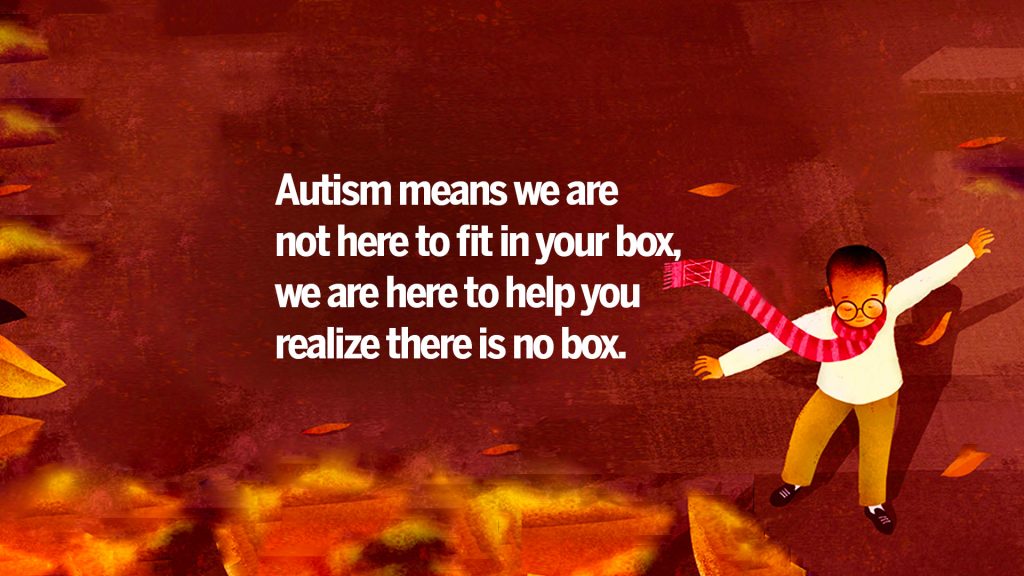
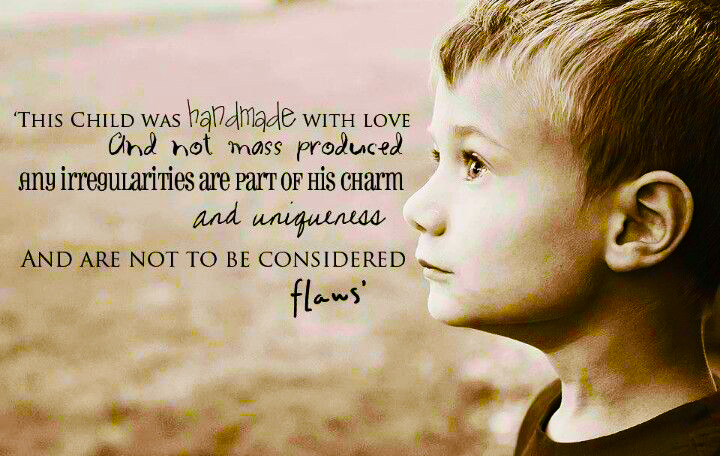
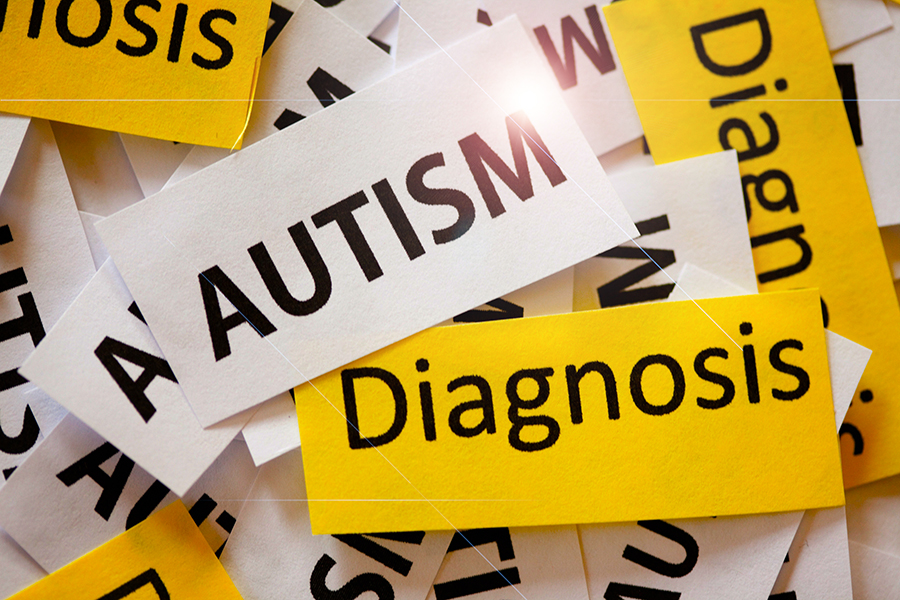
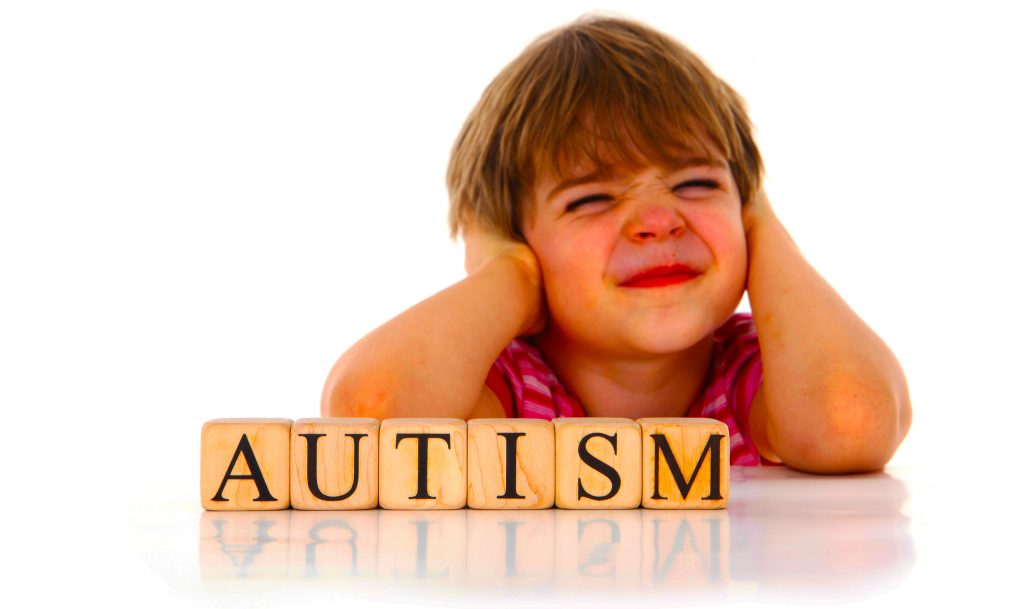

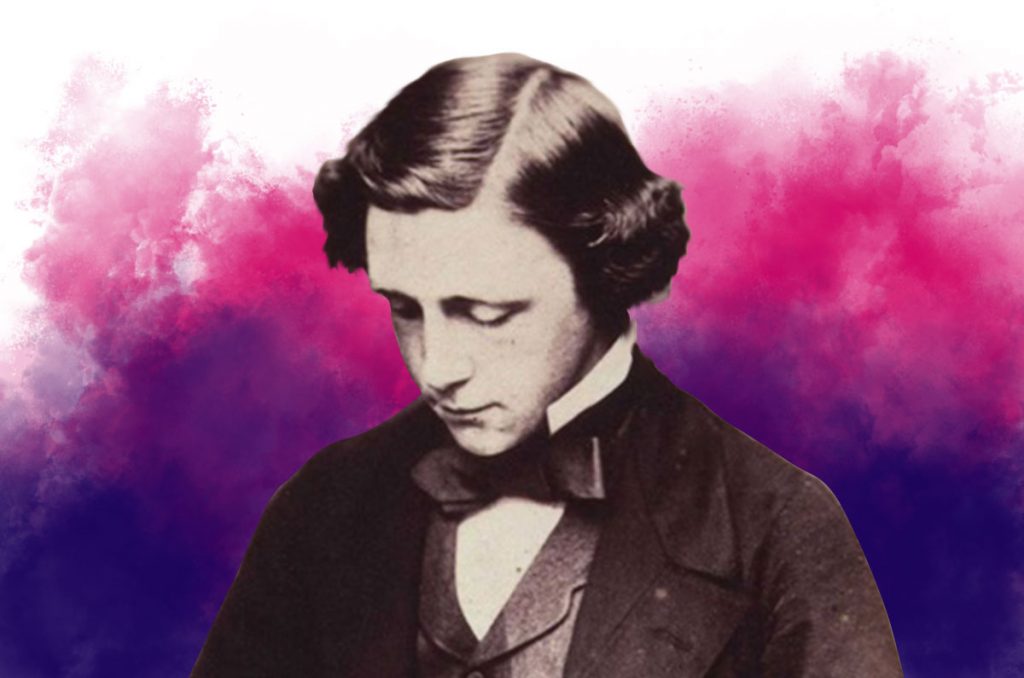
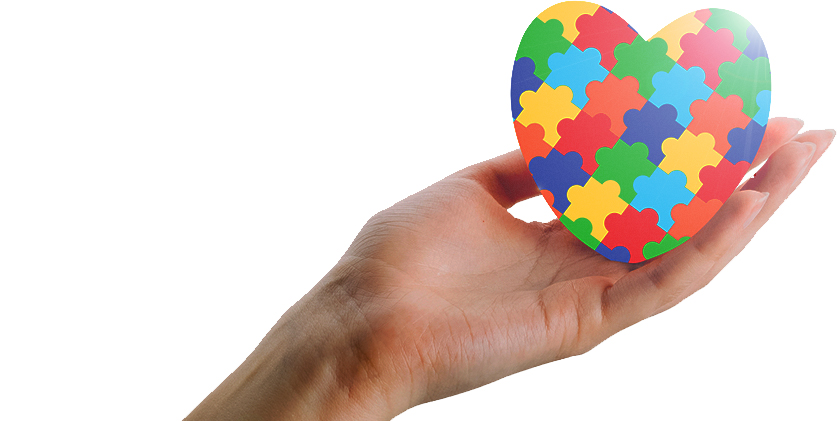
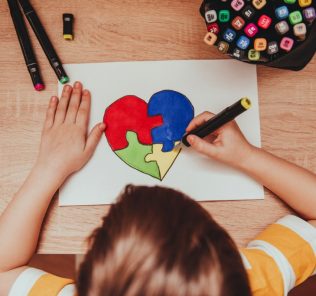
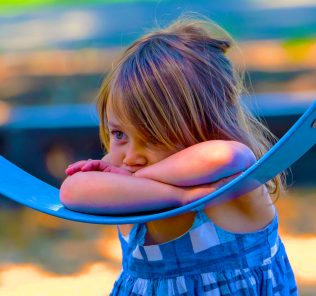

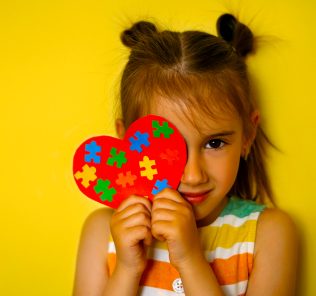
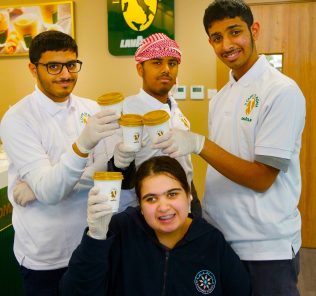















Leave a Response